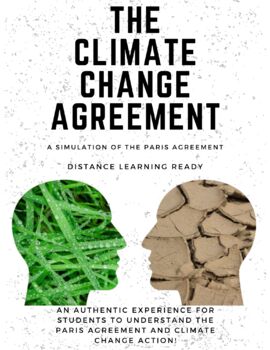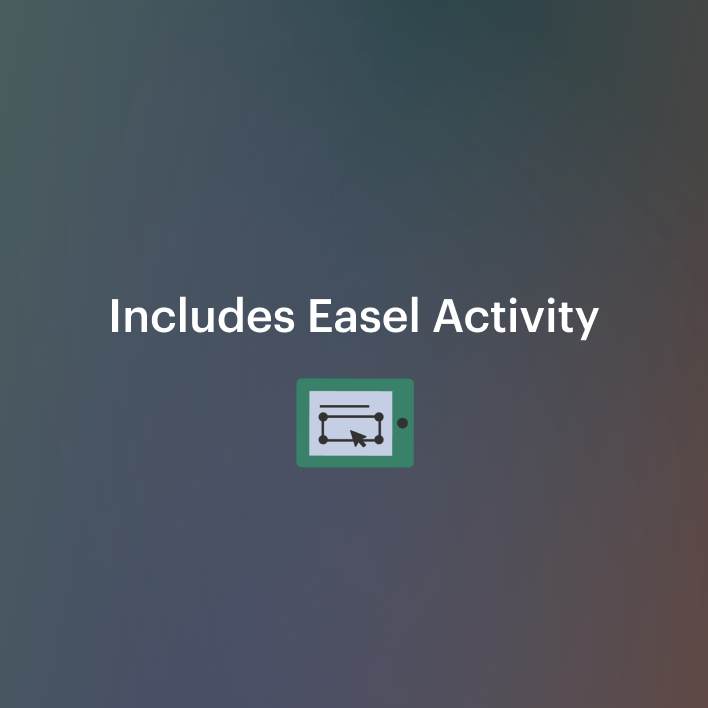The Climate Change Agreement -- Paris Agreement Role Playing / Simulation
- PDF
- Easel Activity
What educators are saying
Description
The Climate Change Agreement -- Paris Agreement Role Playing / Simulation
Background Information
This engaging, role-playing activity simulates the conference and writing of the Paris Agreement. This is a perfect multi-day activity for a high school science classroom focusing on climate change and global policies.
First, students are asked to read The Paris Agreement text while answering a set of questions to gain a deeper understanding of its goals and layout. Next, students are assigned roles as representatives from various countries. They research climate change effects of their country while acting as that representative. The final steps involve a full climate change conference in which students come to a full agreement on various goals and logistics. As an assessment, students are to formally write The Climate Change Agreement based on the verbal agreements from the simulated conference.
Materials include...
- Paris Agreement guided reading questions
- student role sheet
- research and discussion questions
- written assignment requirements
- student work samples of essays
Note: Be sure to download a copy of The Paris Agreement from the United Nations Framework Convention on Climate Change (UNFCCC) here
Perfect for...
- online learning and distance learning
- climate change lessons and sustainability lessons
- high school environmental science class
- AP Environmental Science
- Model United Nations
- units on sustainability, climate change, and human impacts on the environment
- building critical thinking and discussion skills
- Can be used as an online learning resource, distance learning, or in-person - includes fillable PDF so you can assign it to your Google Classroom
Looking for more? Check out our related products!
Sea Level Rise Analysis -- Climate Change and Sustainability -- PDF VERSION
Krazy For Kelp -- Marine Ecosystem and Sustainable Seaweed Farm Design Project
Sustainable CEOs -- Build a Sustainable Business
2050: Sustainable Cities -- City Design Project
Want updates?
Be sure to click the green star on my store page to follow me and be the first to know about new and updated products!






